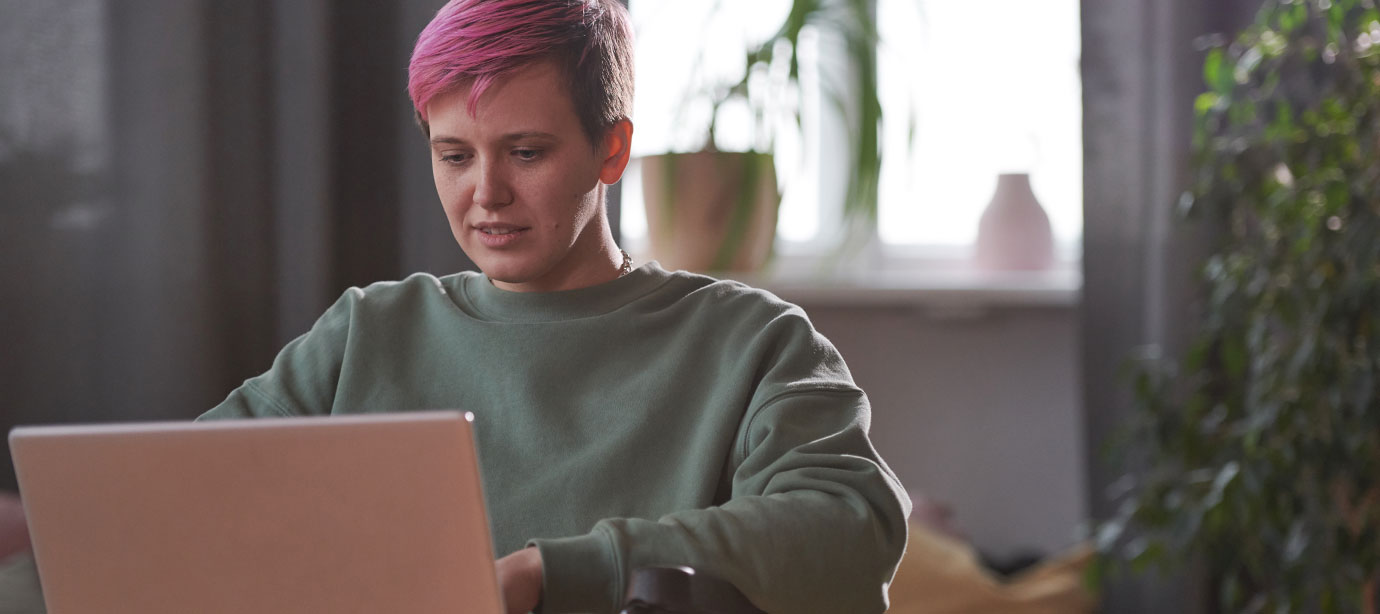Disabled people and domestic abuse
Recognise the signs of an unhealthy relationship and what you can do to get help

If you are disabled, your abuser may also be your carer, or your personal assistant and you may be reliant on them for personal care or mobility. You can be subject to physical, psychological, sexual or financial violence in any or all of the ways that other people are.
About
Disabled people can experience domestic abuse over long periods of time. It can also be more severe and frequent abuse than non-disabled people.
Domestic abuse may be experienced from intimate partners, family members, personal care assistants and health care professionals. The abuse may be more severe and include coercion, control or abuse from carers.
Find out how we can help you and how you can get in touch.
There is also lots of information and helpful links on disability and domestic abuse on the Ann Craft Trust website.
Woman’s Aid also has support for disabled women on their website
Myths and misconceptions about domestic abuse
They do not hit me so it is not abuse
Find out more about the different types of abuse.
Domestic abuse always involves physical or sexual violence
Other abusive behaviours include:
- Coercive control
- Psychological abuse
- Financial or economic control
- Emotional abuse
- Harassment
- Stalking
- Online or digital abuse
Short free online awareness courses are available to help you understand more about domestic abuse.
Alcohol and drugs make people more violent
They can be a good parent even if they abuse me, it does not have to affect our children
An estimated 90% of children whose parents are in an abusive relationship witness the abuse. When a child witnesses domestic abuse it is child abuse.
Find out more about children and domestic abuse.
All couples argue – it’s not domestic abuse, it is just a normal relationship
Find out more about Recognising unhealthy relationships.
Domestic abuse only occurs in impoverished, inner-city areas.
Only women experience domestic abuse
Domestic abuse is a rare occurrence
Domestic abuse is often a one-off incident
People experiencing abuse often provoke assaults and therefore “ask for it”
Domestic abuse is a private matter that others should not get involved in
If you or someone you know is experiencing domestic abuse phone 0800 69 49 999.
In an emergency you should always dial 999, if you are unable to speak because you are worried you will be overheard you can press 55 and the operator will know that you need assistance.
More information
Domestic abuse e-Learning
Somerset Council on behalf of the Safer Somerset Partnership organises a range of training courses, from basic awareness to more specialist courses.
Directory of additional support services
Somerset Domestic Abuse Service is Somerset’s main specialist service which provides support to men, women and children who are affected by domestic abuse.
Find other local and national services that can provide you with extra support.
Contact us
Call us
8am to 8pm
7 days a week
0800 69 49 999
Emergencies
If you or someone you know is in immediate danger, please call the Police
